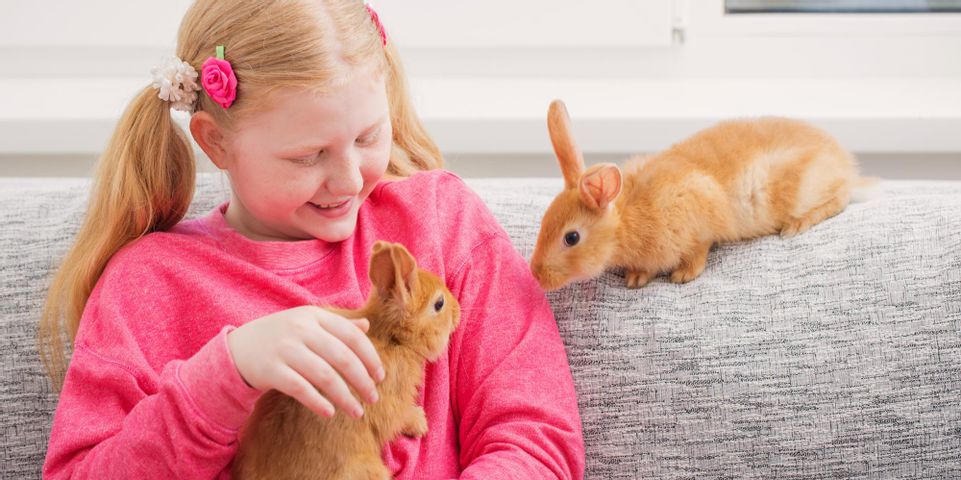
Despite their small size and quiet nature, rabbits are naturally sociable and make excellent companions. However, rabbit care is often misunderstood, so first-time owners should do their research before bringing a bunny home. This guide outlines the basics of looking after your new pet.
5 Tips for Caring for Your Bunny
1. Offer a Natural Diet
Contrary to popular belief, rabbits don’t eat carrots all day. A proper bunny diet should primarily consist of pellets and hay. Fiber-rich pellets and raw, leafy vegetables, such as kale, lettuce, parsley, and dandelion greens, are also an excellent source of nutrition. Sweet vegetables and fruits can be given as occasional treats. Wash all fruits and veggies thoroughly, and always provide fresh, clean water daily.
2. Give Them Space to Stretch
 Rabbits need plenty of space to stretch out and hop around. Housing options include bunny pens, spacious cages or condos, or a designated rabbit-proofed room. If you’re caging your rabbit, avoid wire flooring, which can damage their feet over time. Indoor housing is strongly recommended, as just the sight of a predator, like a dog, can alarm domestic rabbits.
Rabbits need plenty of space to stretch out and hop around. Housing options include bunny pens, spacious cages or condos, or a designated rabbit-proofed room. If you’re caging your rabbit, avoid wire flooring, which can damage their feet over time. Indoor housing is strongly recommended, as just the sight of a predator, like a dog, can alarm domestic rabbits.
3. Handle Them Gently
Most rabbits enjoy petting and relaxing in laps, but approach them in a non-threatening manner and handle them carefully. Before interacting, quietly kneel or sit to get on their level. Never pick up a struggling rabbit as they can easily injure themselves trying to get away. When lifting your bunny, support their front and hindquarters and place them against your body. Lower them hindquarters-first when setting them down.
4. Provide Plenty of Stimulation
Stimulation is a critical but often ignored element of rabbit care. All rabbits need daily enrichment and exercise to stay happy and healthy, and they don’t have to be pricey toys marketed towards bunnies. Rabbits enjoy toys they can hold in their mouths and toss around, making baby keys, bird toys, cardboard tubes, and bells excellent options. Cardboard boxes can serve as both a secure hiding place and a chew toy.
5. Set Up Vet Appointments
Just like cats and dogs, rabbits need annual checkups at the pet hospital to ensure they’re healthy. Your veterinarian may also set up a vaccination schedule to protect your rabbit against diseases, like the myxoma virus. Talk to your vet about spaying or neutering to prevent unwanted litters, ease the house training process, and help reduce hormone-driven behaviors, like spraying and territorial aggression.
If you’re looking for a veterinarian that specializes in rabbit care, The Pet Clinic provides reliable small animal services that will keep your bunny in top shape. Located in Honolulu, HI, this clinic utilizes the latest in veterinary technology and medical knowledge to offer your companion the best possible treatments and preventative options. Visit their website to learn more about their services, or call (808) 946-5096 to schedule an appointment.
About the Business
Have a question? Ask the experts!
Send your question

